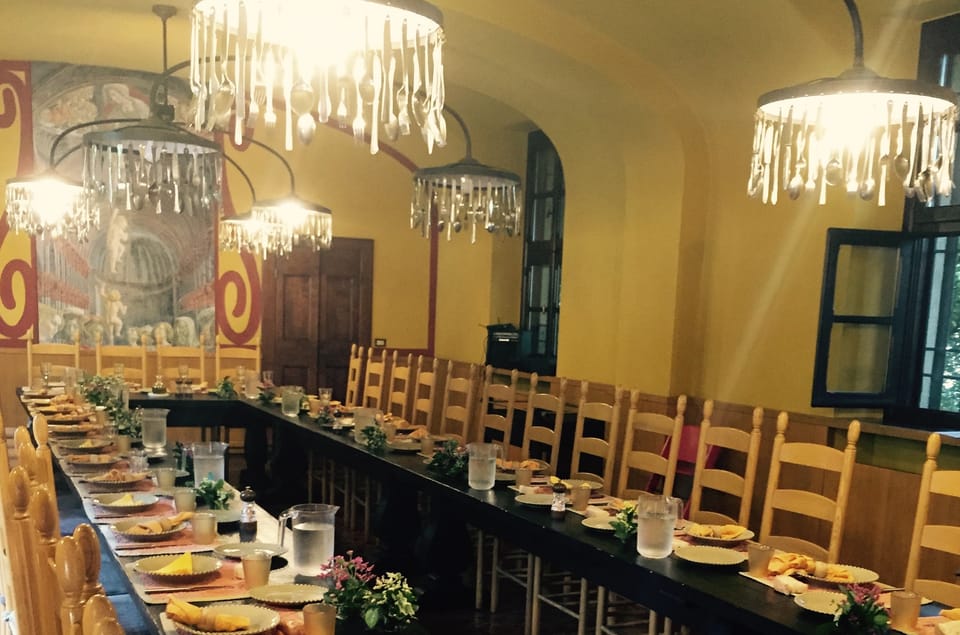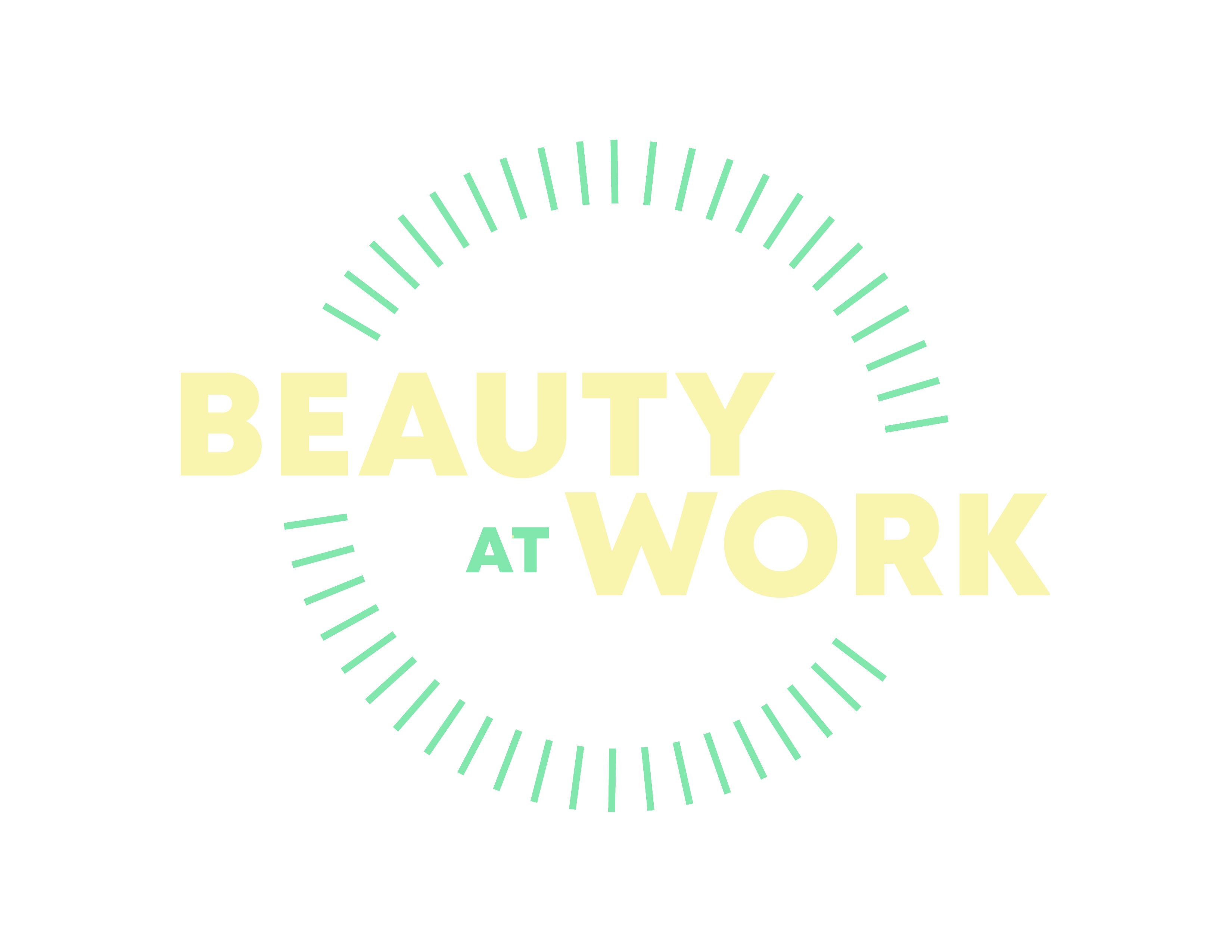Generative hospitality: The beauty of welcoming the other

The word hospitality conjures up images of restaurants, hotels, or having people over to your house. Etymologically, the word originates in the Latin hospes, which can mean "host", "guest", or "stranger." Across cultures, we consider it a virtue to welcome the stranger. This is what lies at the core of the beauty of hospitality. At times, this gesture of welcome can be quite radical; beyond the short-lived transactions or interactions we may experience in the hospitality industry, there are modes of hospitality that are long-lasting and transformative.
In this post I want to share with you the experience of two organizations in Italy, both of which are committed to radical hospitality in fostering and educating children, and have much to teach us about what "beauty" means in this context. I interviewed the leaders of these organizations and want to share the key insights they have learned about the beauty of hospitality as well as the role of beauty in hospitality. The interviews are in Italian with English subtitles.
Click on the image to watch the video
We hear first from Alessandro Mele, CEO of Cometa, an association that is redefining educational paradigms in the Como region of Italy. Cometa started as a network of families that took in foster children, beginning with an HIV-positive child, and expanded to a school for at-risk youth. Key to their educational approach is nurturing children's sense of self-worth and dignity through hospitality. When I first visited Cometa in 2015, I was struck by how every place setting at their dinner table had freshly-cut flowers--an extravagant gesture perhaps, but one that aptly conveys to each person that they are of great worth, that they are welcome, that they belong.
In my interview with Alessandro, he shares stories and insights about their innovative methods, from building a school that exudes beauty to their emphasis on hospitality and inclusiveness. These elements combine to create a transformative experience for vulnerable children. It is a powerful testament to how beauty matters for education and can make a profound impact on young people's lives.
Next, we hear from Luca Sommacal, President of Famiglie Per L'Accoglienza (which translates to "families for welcoming"). This association has been a lifeline for many in Italy and beyond through its work in foster care and adoption over the past 40 years. Luca tells me how their model of hospitality extends beyond providing a safe shelter. Drawing on a metaphor by sociologist Chiara Giaccardi, he argues that they see the family not as a protective nest but rather a dynamic knot of relationships, connecting people from various walks of life.
Click on the image to watch the video
By hosting children, the elderly, and others in need, their work has profound impacts on their community and society. And yet it is not without immense challenges, as Luca discusses how families need to accompany each other through the inevitable suffering that comes with their commitment to welcoming the other. We learn what it takes to dedicate oneself to true hospitality, and how such actions can change the world, one family at a time.
Please click on the video links to watch them on our YouTube channel. While you're there, please subscribe if you haven't already, and join our community of nearly 30,000 people from all over the world.
English transcripts of the videos follow below.
Alessandro Mele
We built a particularly beautiful school. When the kids came in—I was a bit worried because it was so beautiful that I'd say, "I think it's going to be difficult to be able to maintain this beauty." But instead the kids would come in and speak quietly; they would say "It looks like a bank," "It looks like a hotel." One class would come in at a time and one girl said, "Well, I guess we're not going to break anything this year," grasping the difference in beauty of where they had come from. And the most terrible of them all, a girl already with huge problems, a violent girl, when she looked at the entrance, she said "So we are important to you. I thought these things were only for daddy's boys and girls" (meaning the rich kids). And she was very conflicted at first because she thought "There's no way you're doing this for us because nobody does anything for us. We're not important, we don't deserve this." Instead, it is precisely this value, this dignity, that beauty restores.
Cometa was founded, I would say, by chance, without any plans, without a defined strategy. By a family that opened itself up to take in an HIV-positive child who needed a family. And from this first yes, one yes after another, a city within a city came into being. A place where five families with 50 to 60 children now live, including both biological children and foster children. And around it a network of families has been created that, touched by this experience, has begun to welcome children into their homes – children who obviously need a home and a family – and has grown together with the children. So between foster care and day care, we have 140 children who come to us between lunch and dinner. And because some of these kids were dropping out of school, we started teaching them trades. And today we have 400 kids in training as part of a specialized program especially for those who are the most vulnerable, the disabled, immigrants... An inclusion center, an educational center on inclusion, which teaches local trades and introduces them to adult life. For the most vulnerable young people, we also started up our own work activities as they couldn't find a job and we thought we could give them a hand. All this through beauty.
Beauty is the main tool. The main tool because it's the way we correspond to what God has given us. Like when we're expecting an important person at home, we tidy up, we organize, we clean, we prepare, so that this person feels welcome, like any important person. As God did this with us, we do this with each other and with the kids we welcome. And the children perceive this very strongly and very clearly. The beauty of hospitality is being aware of the enormous value that the other person has to me. We help the kids, but we also have a course on hospitality. And it's a school to which we are particularly attached and fond of precisely because it all started from the sacredness of the guest; from the origins of our experience that others are like a gift to our lives that help us to become ourselves. Because we don't become ourselves alone; we do so by building relationships. We are made to live, to grow, in a relationship with others. You see, beauty in hospitality is the normal way in which each of us can welcome others in order to become ourselves.
You can learn more about Cometa at their website here or this New York Times story about them by David Brooks.
Luca Sommacal
We live in a society, in a world, where individuals experience a great deal of loneliness, as do families. The family is often seen as a place where we have to protect ourselves from the outside world. So the family is seen as a nest, a protective nest in which we raise our children and keep them safe from external dangers. Instead, the family is not a nest, but rather a knot. As a well-known sociologist said, it's a knot of relationships. It's a point of connection with the world, with other families, with other people, with other realities. This is the beautiful experience that we have every single day in our association.
My name is Luca Sommacal, I'm the president of Famiglie per l'Accoglienza. Famiglie per l'Accoglienza is a social development and support association founded in Italy 40 years ago by a network of families who support each other in the experience of housing those in need and who propose it as an asset to society and to the whole world. We take in children under adoption, in foster care; we take in people in difficult situations, including adults, minors, and even foreigners and students. And we also have families who take in disabled children and even care for elderly parents.
What does an experience of beauty have to do with anything? How can the experience of families taking in those in need be beautiful? We also deal with the significant wounds that our children have experienced, that the people we host often carry with them. How can this experience of being wounded, these dramatic experiences, become an experience of beauty? A positive experience? First and foremost, the gesture of welcoming others in is a gesture of positivity; a positive gesture that carries with it a profound meaning. You become a profound part of my life. When you enter my home, you become a profound part of my life. This relationship transforms; it transforms the way we see things, it transforms the way we breathe, it transforms the way we live. But in what way? My desire and love for your destiny becomes predominant in my relationship with you, the person I'm welcoming in. And so I can embrace your wounds, I can embrace your vulnerabilities, and I can guide you on your journey, as you live your life and, for a child, as you become an adult. This is, in fact, the profoundly positive and beautiful experience offered when welcoming someone into your home. In relationships with others, there's this complete gratuitousness, this love for the destiny of others; you're not looking for anything from this other person, there's just this passion for the person you're welcoming in. And this is the experience of beauty. Every family that takes someone in is in a relationship with other families. That is our association. And this experience, this connection, allows each family to more soundly live through the difficulties that every hosting experience inevitably brings with it. And you can face problems and critical issues together. One family's experiences can help the difficult experiences of another. But above all, we can help each other continue rediscovering the profound reasons and motives that support the welcome that we're offering, because in difficult moments it's very easy to say or to ask yourself "Why did I do this?" and it's very easy to lose sight of the ultimate meaning for which you started on that journey in the first place.
Support among families that is based on rediscovering the deeper meaning is one of the most important, most necessary experiences that can be had when welcoming someone into your home, whether through foster care or adoption. And on the other hand, coming together with other families can also turn into dialogue with the outside world, with institutions and with other realities. So it starts to create new social relationships capable of interacting, creating, building, and changing the world.
You can learn more about Famiglie Per L'Accoglienza here.
If you found this post valuable, please share it. Also please consider supporting this project as a paid subscriber to support the costs associated with this work. You'll receive early access to content and exclusive members-only posts.
